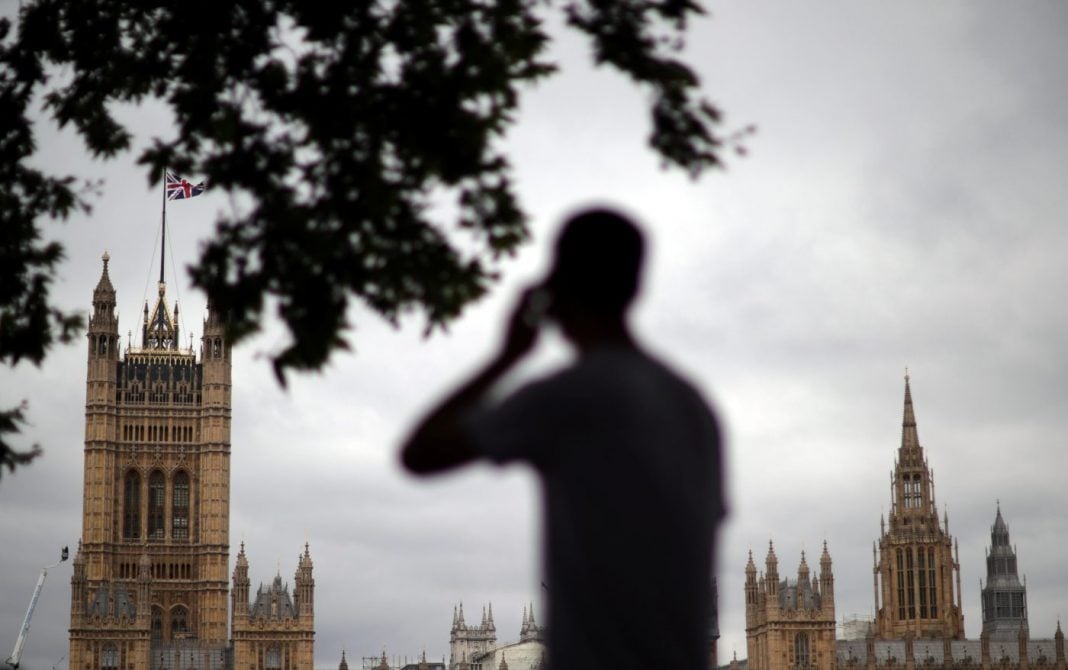Government secrecy breaches leave red faces in London.
By Edward Lucas, for CEPA
Old habits died hard in the former empire. Murky commercial and espionage interests in the former colonies survived long after nominal independence. In the former imperial capital, secrecy and deceit reigned. How else to maintain to the fiction of global significance? From spy agencies to special forces, from the nuclear deterrent to military disasters, from atrocities to abuses, intrusive questions were brushed aside with pompous words about “national security;” with fear-mongering about hostile foreign powers who would love to have this information; and, if necessary, through ruthless, sweeping use of the legal system. No journalist, campaigner, or independent-minded politician would be so unpatriotic, so rash, as to poke their noses into these grave matters of high statecraft.
Sounds familiar? Many of the above elements indeed fit Russia’s history since 1991. But the events of past days provide another candidate: the United Kingdom.
My country’s biggest military and intelligence scandal in decades involves a database of 18,714 Afghans who had applied for relocation after the shambolic withdrawal of US and allied forces in August 2021. Their contact details — and also the names of British special forces and intelligence officers vouching for them — were emailed to some recipients outside government by an unnamed defence official in February 2022, apparently as part of an effort to check eligibility.
So far, so bad. When in August 2023, details of nine of these people appeared online — with thinly veiled threats to publish more — the government applied for a court order, or “injunction” in English legal terminology, to prevent the leak becoming public. It also applied for a “super-injunction” which made it illegal, on pain of ferocious “contempt of court” penalties, including unlimited fines and imprisonment, for anyone, anywhere, to refer to the existence of the first court order.
Get the Latest
Sign up to receive regular emails and stay informed about CEPA’s work.
Now that “super-injunction” has been lifted, and the whole mess is becoming public. Amid the secrecy, many around 15,000 Afghans, including some who probably did not merit relocation, were brought to Britain in great secrecy and at great expense (around £2bn/$2.7bn/€2.3bn). Another result of secrecy: much more deserving candidates still languish in Afghanistan, living in daily fear that the Taliban will track them down and wreak vengeance.
Explaining this to foreigners is quite hard. How can a court silence public discourse so effectively? Even members of Parliament — had they got word of this — would have been unable to raise it. The speakers of the Commons and the Lords had both been briefed on the super-injunction. The Intelligence and Security Committee of Parliament, which is the only body that provides independent scrutiny of the securocrats, was never told about any of this. The “super-injunction” is normally (and rarely) used to protect the illegitimate children of public figures, whose chance of a normal childhood depends on being able to live without media scrutiny. It has never been used to cover up an administrative blunder.
In the end, the system worked. Unlike in Vladimir Putin’s Russia (who really blew up those apartment blocks in Moscow and elsewhere in 1999?), the truth has, more or less, come out. Perhaps some junior soldier will even be fired or disciplined for the mistaken email. New rules about handling secrets will come in (along with, no doubt, new ways of circumventing them). Politicians blather and wriggle. This extraordinary saga of incompetence, secrecy, waste and injustice will for years remain an enormous blot on Britain’s record for accountable, efficient, ethical government. Enemies will mock. The whole story is catnip for conspiracy theorists (how many other super-injunctions are out there?) Allies will rightly worry about trusting such a country with their secrets—and with their safety.
By Edward Lucas, for CEPA
Edward Lucas is a Senior Fellow and Senior Advisor at the Center for European Policy Analysis (CEPA).
Europe’s Edge is CEPA’s online journal covering critical topics on the foreign policy docket across Europe and North America. All opinions expressed on Europe’s Edge are those of the author alone and may not represent those of the institutions they represent or the Center for European Policy Analysis. CEPA maintains a strict intellectual independence policy across all its projects and publications.





